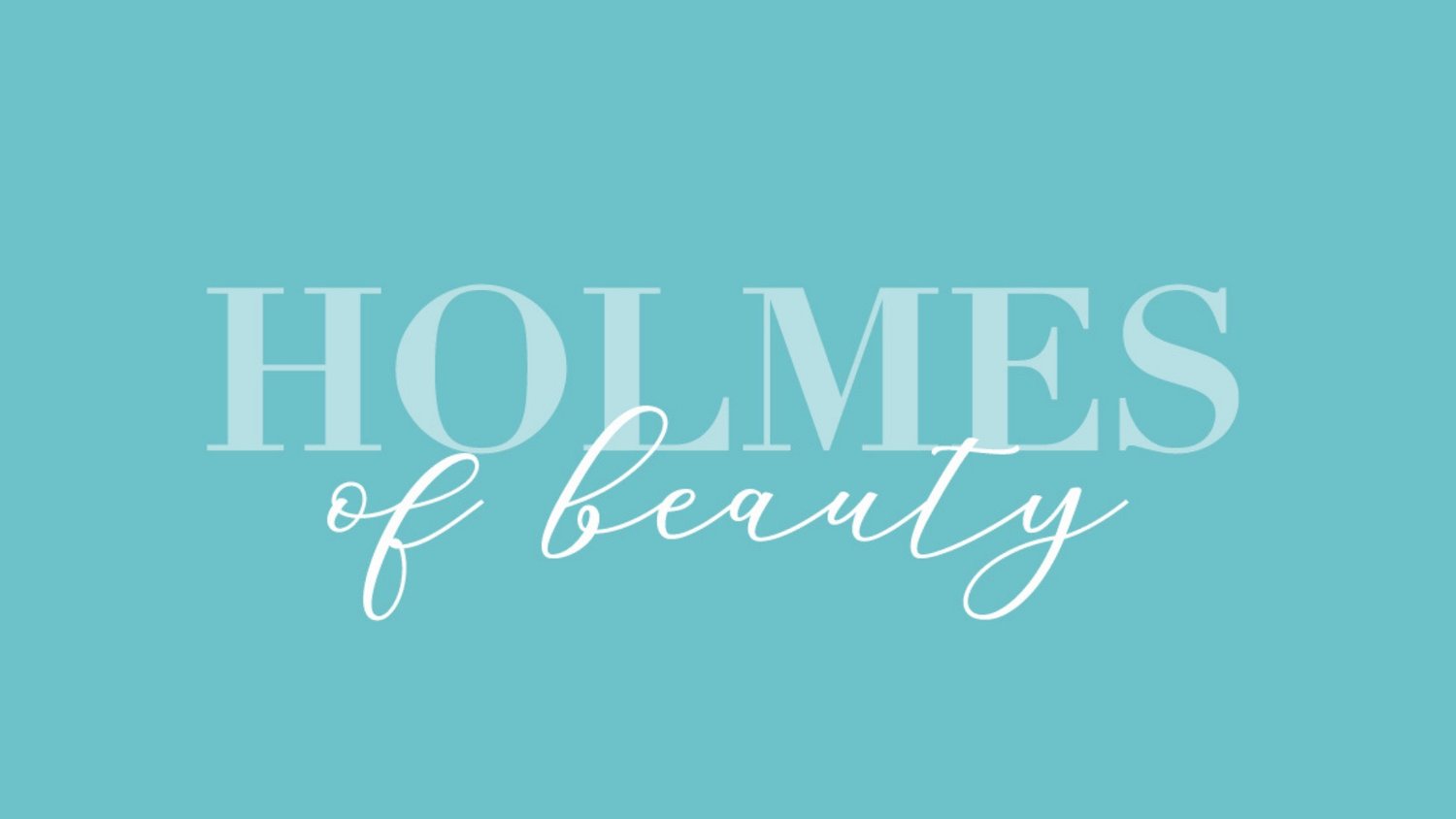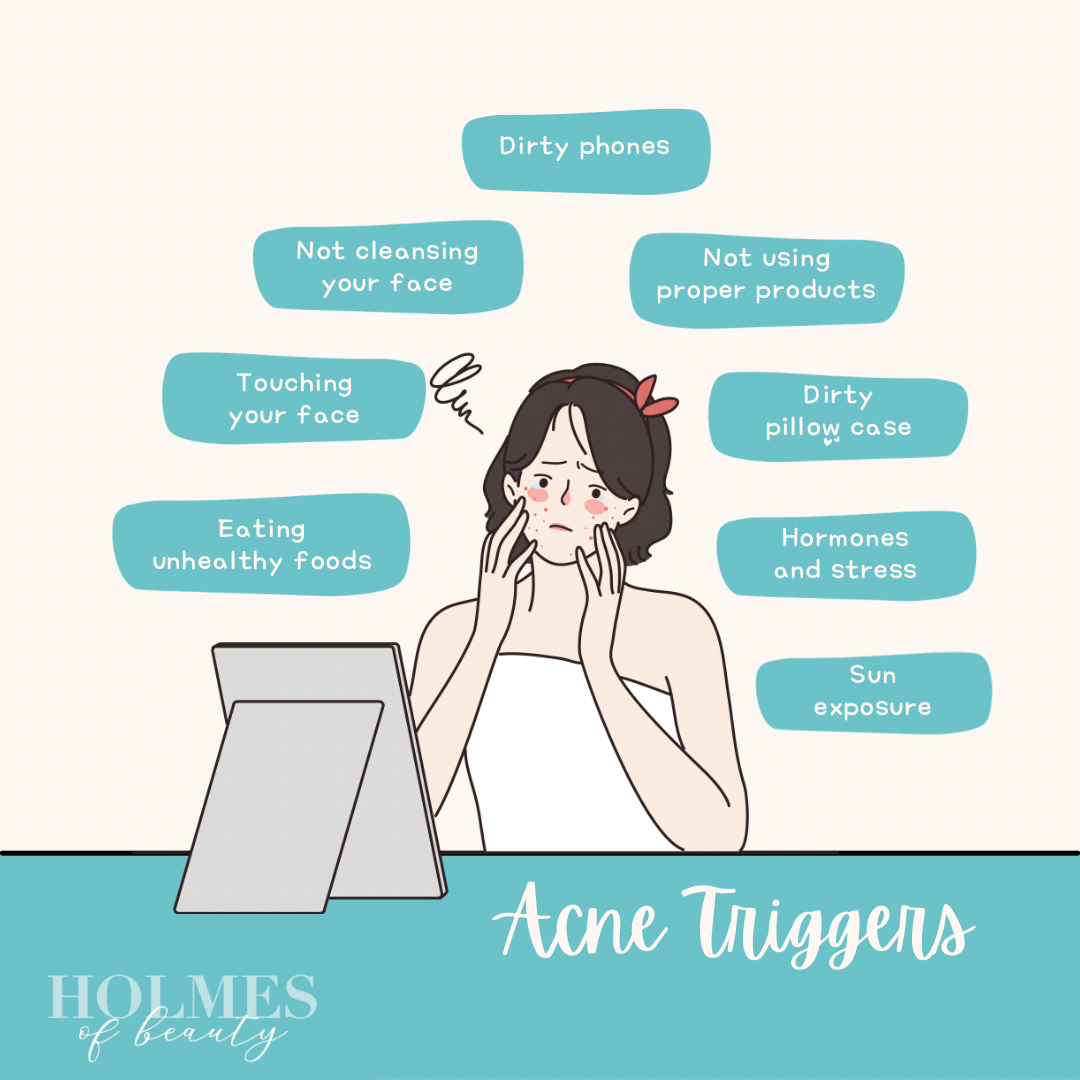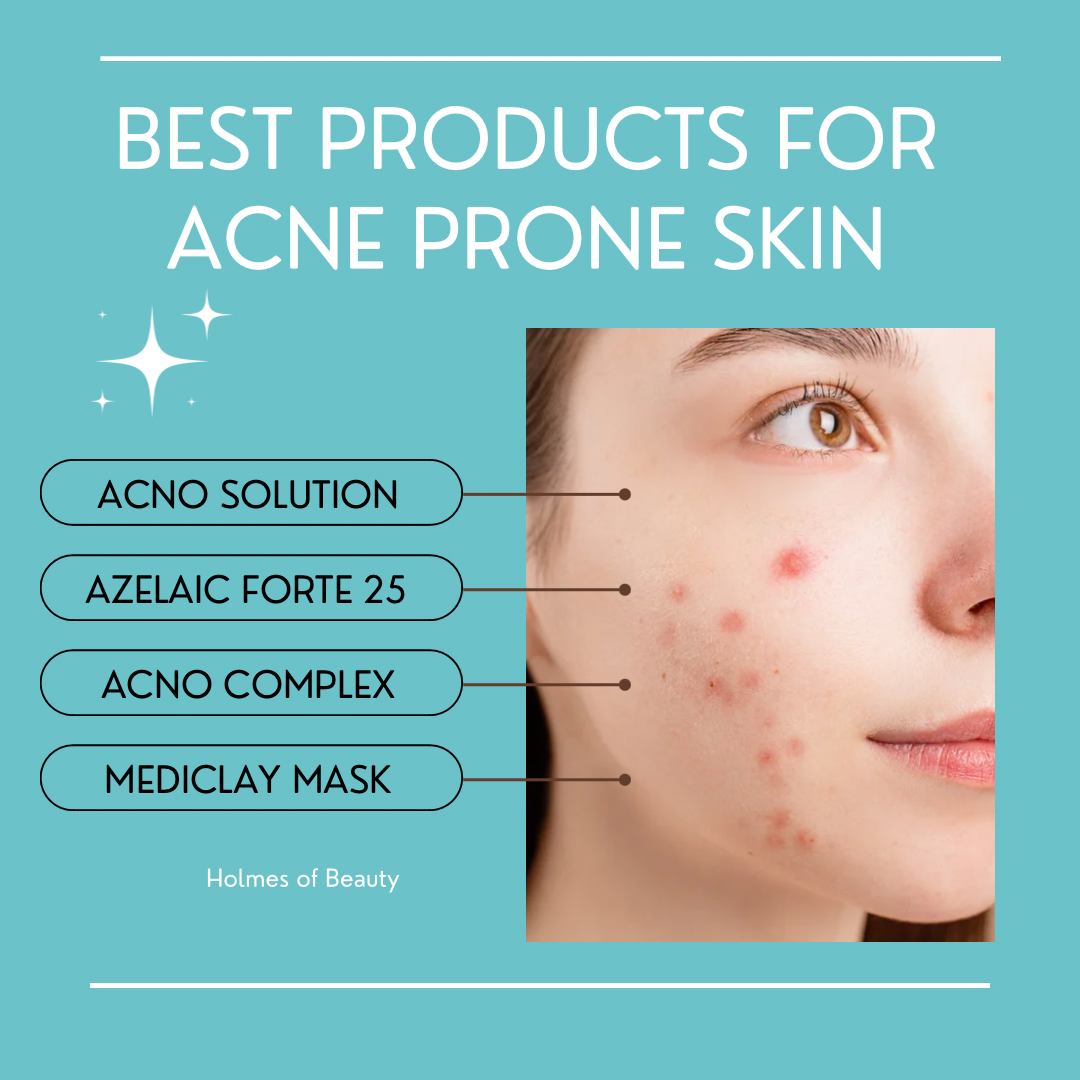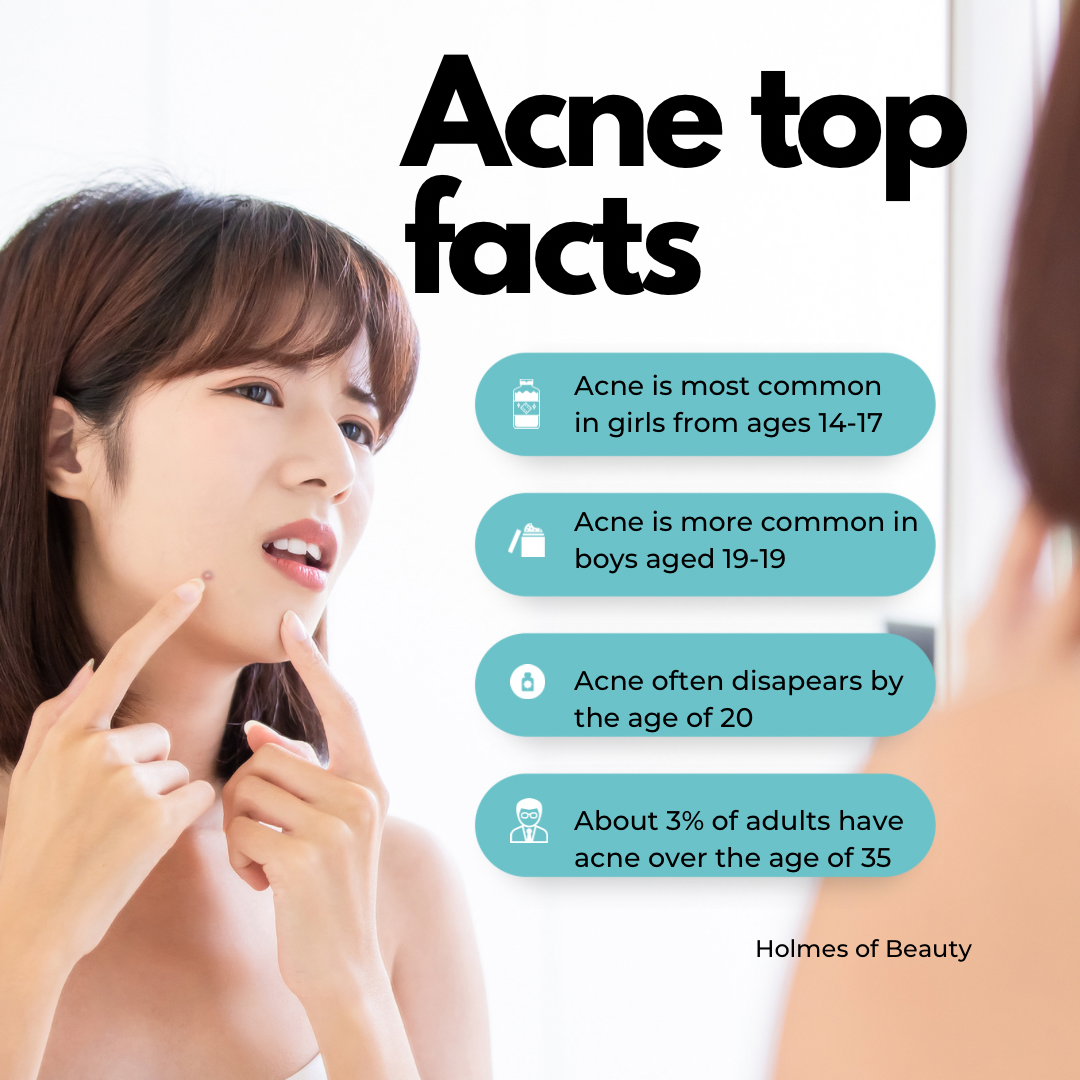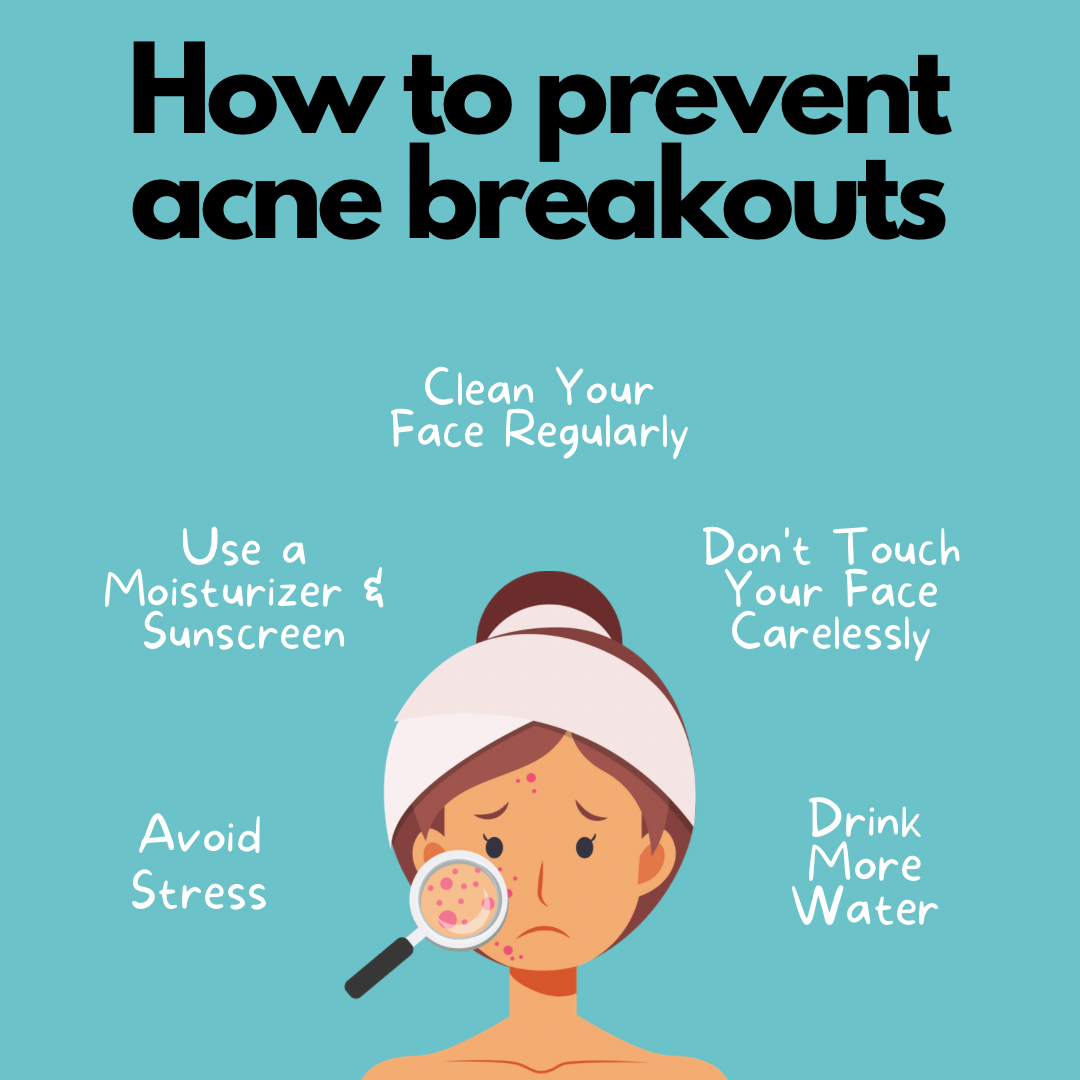Acne Awareness Month - June
Your guide to acne and the best products & treatments.
Welcome to your comprehensive guide to acne, its implications, and the most effective products and treatments available. Acne is not just a teenage woe; it's an extremely prevalent skin condition affecting an astounding 95% of individuals between the ages of 11 and 30. Despite its widespread occurrence, the level of awareness around this condition is surprisingly low. This lack of awareness is precisely why initiatives like Acne Awareness Month, celebrated every June, are crucial. This important event aims to shed light on a condition that, while often dismissed as superficial, can have deep-seated effects on self-esteem and overall well-being.
On that note, it only seems fitting that we use acne awareness month as it was intended and discuss the big questions all acne sufferers want to know. Everyone seems to have an opinion on acne, but what do you need to know? From what is acne to what causes acne, read on to gain clarity about this common skin complaint and the recommended acne treatments.
Why We Celebrate Acne Awareness Month
June Acne Awareness Month was initiated with the specific purpose of reducing the stigma often associated with this prevalent skin condition. This specially designated month serves as a rallying point for open dialogues and inclusive conversations about acne-prone skin, offering an annual occasion where the topic can not only be discussed but celebrated.
But Acne Awareness Month is not just about public awareness; it's also a crucial period for the medical community. June presents an invaluable opportunity for medical professionals, dermatologists, and experts in the field of dermatology to highlight the latest advancements in acne research, therapies, and beauty treatments. By setting a spotlight on acne during this month, these specialists pave the way for groundbreaking dialogues, offering strategies for managing and effectively treating the condition.
Having a national acne awareness month serves a dual purpose. It not only encourages the public to be more informed but also fosters a safe space for individuals to share personal struggles and success stories. In doing so, Acne Awareness Month empowers people to seek help, explore treatment options, and most importantly, to realize they are not alone in their journey.
Firstly, What Is Acne?
Unfortunately, there are many myths when it comes to conversations about acne. Such as, acne is a sign of dirty skin and acne sufferers should avoid wearing make-up. With all these misconceptions, we’re here to discuss what acne really is.
Acne is a widespread skin complaint that affects people of all ages; however, acne does tend to be more prevalent in teenagers and young adults. The main characteristic of the condition is red spots or zits on the skin as a result of clogged-up pores and hair follicles. But, what many people are unaware of is that there are different types of acne.
The first distinction is inflammatory and non-inflammatory acne. Inflammatory acne is displayed by the distinct red, swollen spots. Due to the inflammation that results, it is often the case that these pores contain bacteria as well as dead skin cells and sebum. There are four types of inflammatory acne:
Papules – small red bumps that are often tender.
Pustules – also known as pimples, these red bumps develop to have a yellow tip containing pus.
Nodules – painful, red bumps under the skin, often irritating.
Cystic Acne – bumps full of pus beneath the skin’s surface.
Non-inflammatory forms of acne will not swell up into a raised bump or spot. Instead, this type of acne presents itself in two forms, whiteheads and blackheads. Whiteheads are pores clogged up and described as closed; whereas, blackheads are clogged pores that are open. Both are filled with a mixture of dead skin cells, bacteria and an oily substance from the body’s sebaceous glands known as sebum.
Make it stand out
The Physical and Emotional Effects of Acne
It is common to suffer acne on the face, it is also possible to experience both inflammatory and non-inflammatory acne on the back and chest. However, regardless of where your acne occurs, all acne can lead to permanent scarring. In addition to the visible symptoms of acne, other physical symptoms include itching, pain and discomfort around the spots. Emotionally, acne can cause people to feel self-conscious. With severe cases, acne patients can also suffer from mental health issues, including depression and anxiety.
How do I stop acne breakouts?
To prevent an acne breakout there are things you can do to control environmental and lifestyle causes. For example, buying face wash that targets blocked pores and avoiding oily and perfumed moisturisers. Similarly, avoid wearing make-up for long periods of time. Try reducing how much you wear make-up and allow your pores to breathe by thoroughly removing all make-up.
When it comes to washing acne-prone skin, doing so as many times a day as possible will only irritate your skin further. Instead, get into the routine of washing your face twice a day and additionally after you sweat. Avoid intense exfoliation and scrubbing as this could pop a pimple and lead to scarring.
Are skin peels good for acne?
Have you ever wondered if skin peels are good for acne? If so, you should know that a face peel for acne is a good option to consider when it comes to treating the problem and reducing your spots.
Chemical peels offer a range of benefits for skin that is acne-prone and acne scar-prone. These include:
Improving the texture and skin tone of the skin by smoothing it out
Lightening and reducing the colour of dark spots
Preventing future breakouts by unclogging pores
What is a Chemical Peel for Acne?
You may have heard of a chemical facial peel in terms of an anti-aging treatment. But what is a chemical peel for acne? Both are actually very similar, and use a type of gentle acid, often derived from natural sources such as fruits, that exfoliate the skin.
Exfoliation is normally associated with physical exfoliants such as brushes and products with rough ingredients that slough away dead skin cells.
But a chemical exfoliant, such as those used in a chemical peel including glycolic acid and salicylic acid, exfoliates by removing the top layers of skin. This has a brightening effect on the skin, as well as removing cellular debris, dirt, stale makeup, oil and bacteria from the pores.
The result of a chemical peel for acne is smoother, clearer, less acne prone skin.
Can I Have a Chemical Peel During an Acne Breakout?
Sounds like an amazing treatment, but what if you’re having an actual acne breakout? “Should I have a chemical peel while I still have acne?” We hear you cry!
Well, the answer is yes! If you have active acne, it's perfectly safe to have a chemical peel. It’s best carried out by a professional, who will know exactly how and where to apply the facial peel products.
Chemical peels effectively exfoliate away the top layer of dead, dull skin and help to treat acne scarring, but they also help to kill the skin bacteria, Propionibacterium acnes, which is a major cause of acne.
Reach out to us at our beauty clinic in Bournemouth for more details about our tailored product recommendations and in-clinic treatments for all your skin concerns. We offer complimentary skin consultations daily because we believe everyone deserves to feel confident and happy in their skin!

